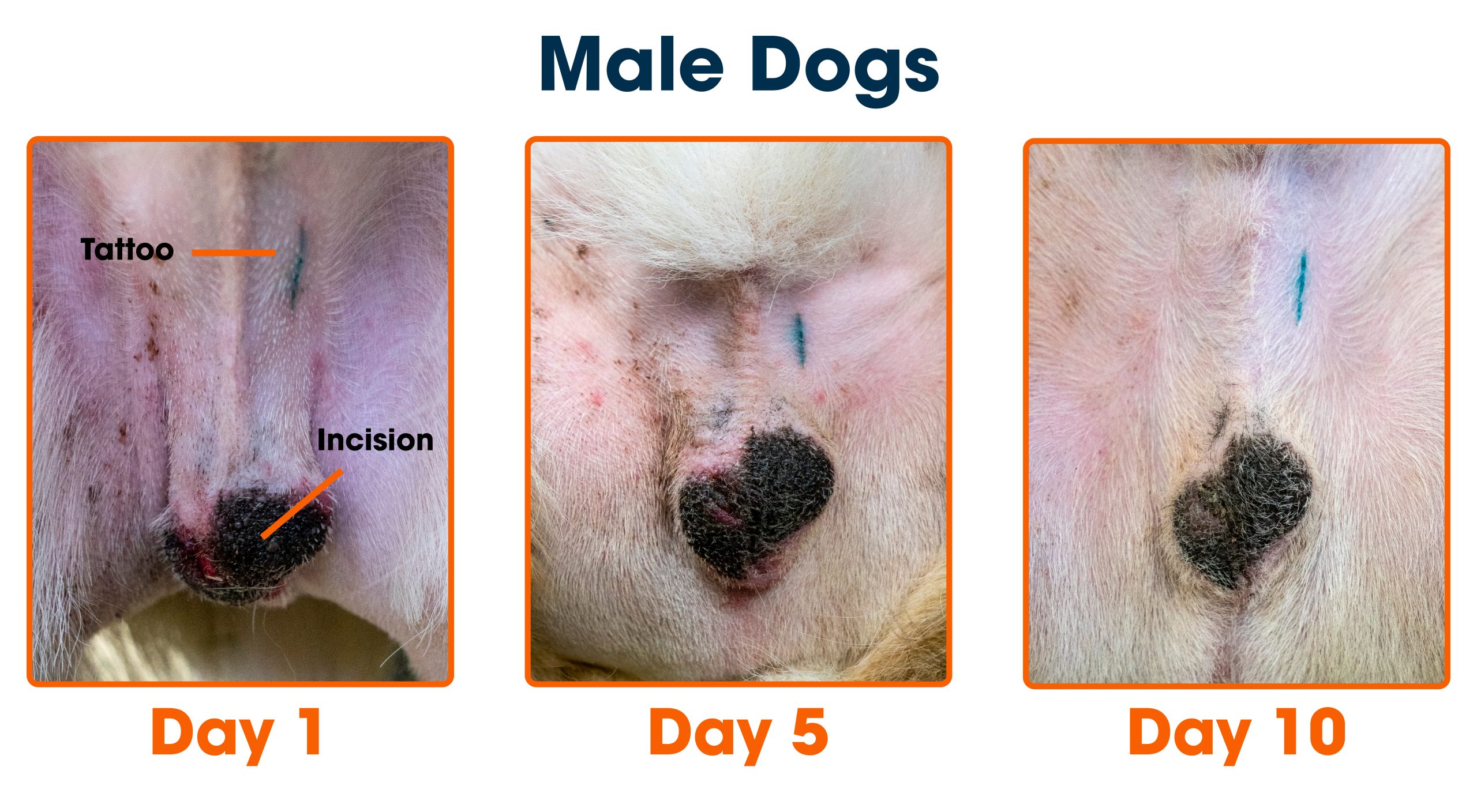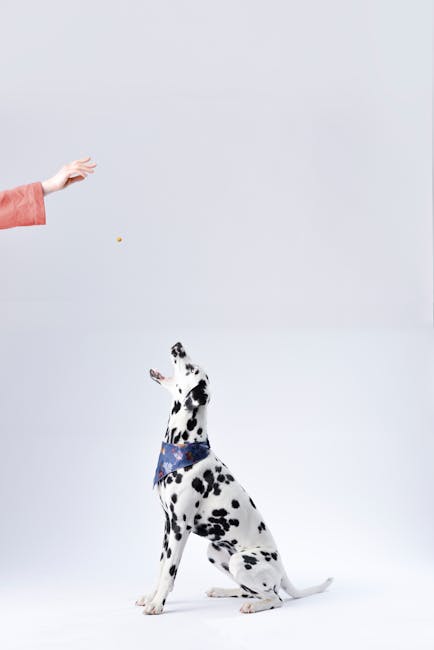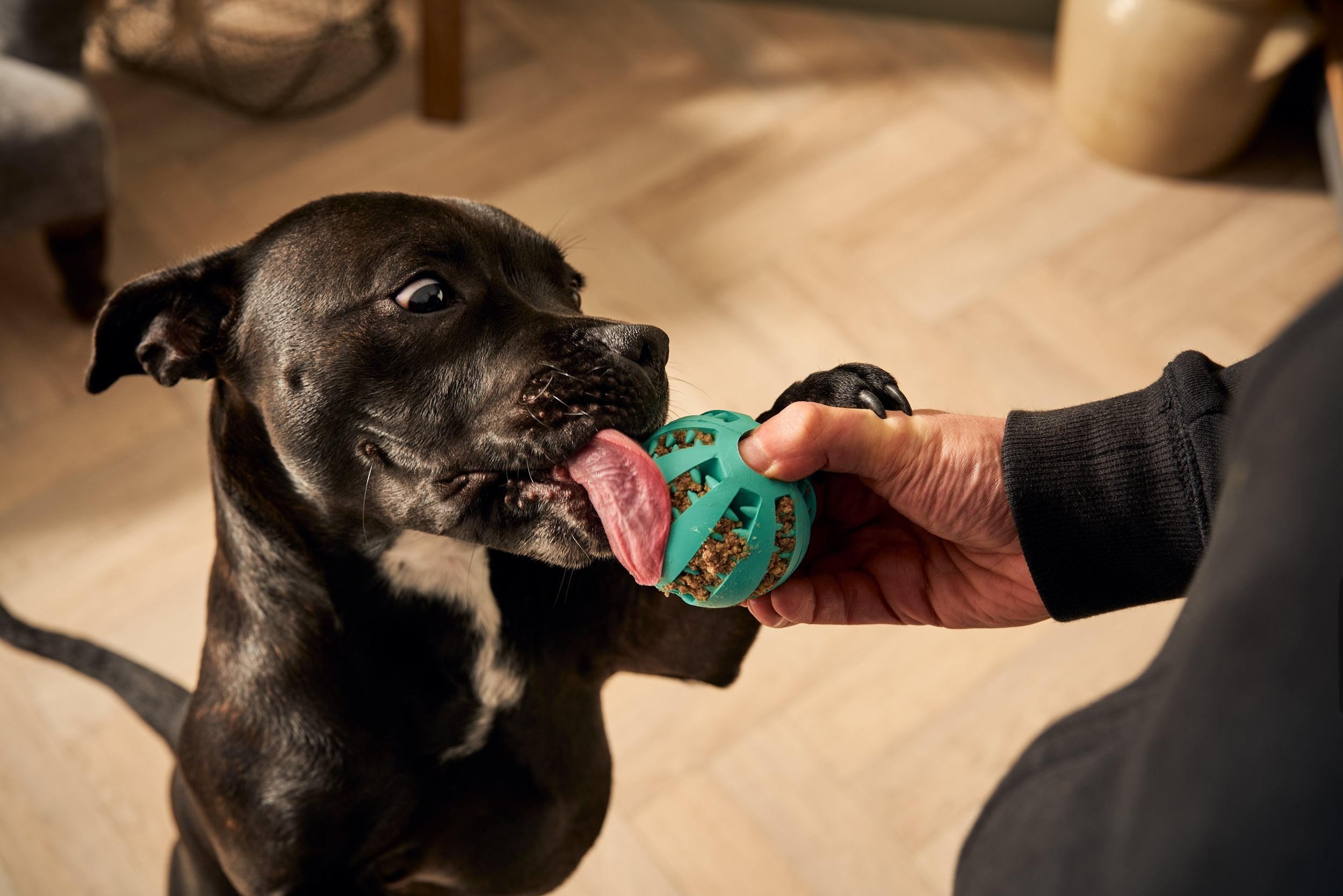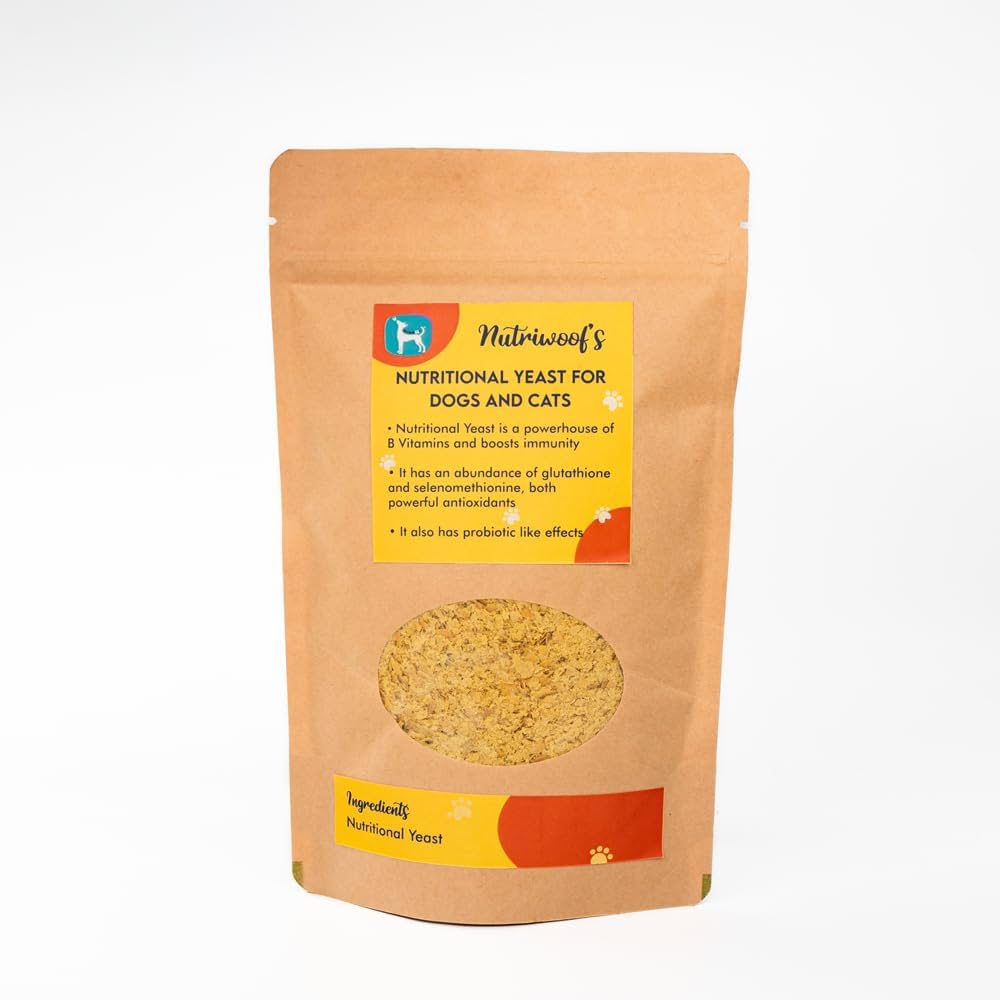Are you curious if nutritional yeast is safe for your dog or cat? You might have heard about its health benefits for humans and wonder if the same applies to your furry friends.
Giving your pets the right nutrients is important, but not all human foods are safe for them. You’ll discover the truth about nutritional yeast and whether it can be a healthy addition to your pet’s diet. Keep reading to find out what you need to know to keep your beloved companions happy and healthy.

Credit: www.facebook.com
What Is Nutritional Yeast
Nutritional yeast is a popular supplement often used in cooking and health diets. It is loved for its cheesy flavor and rich nutrient content. Many pet owners wonder if it is safe and beneficial for their dogs and cats. Understanding what nutritional yeast is helps answer that question.
Origin And Production
Nutritional yeast comes from a single-celled fungus called Saccharomyces cerevisiae. It is grown on a sugar-rich medium such as molasses. After fermentation, the yeast is harvested and washed. Then it is heat-dried to deactivate it, so it cannot grow anymore.
This process keeps the yeast inactive but preserves its nutrients. The final product appears as yellow flakes or powder. It has a nutty, cheesy taste, making it popular in vegan cooking.
Nutritional Profile
Nutritional yeast is packed with vitamins, minerals, and proteins. It contains all nine essential amino acids, making it a complete protein source. It is especially high in B-vitamins, including B12, which is rare in plant foods.
- Protein: About 8 grams per two tablespoons
- Fiber: Rich in dietary fiber
- B-vitamins: B1, B2, B3, B6, and B12
- Minerals: Zinc, selenium, manganese, and iron
- Low in fat and sodium
These nutrients support energy, skin health, and immune function. The fiber helps digestion and gut health. Nutritional yeast is gluten-free and low in calories.
Benefits For Dogs
Nutritional yeast offers several benefits for dogs that might surprise you. Adding it to your dog’s diet can support their overall health in simple but powerful ways. Let’s look at how it can help boost their immune system, improve their coat and skin, and support digestion.
Boosting Immune System
Nutritional yeast is packed with B vitamins and antioxidants that help strengthen your dog’s immune system. A stronger immune system means your dog can better fight off common illnesses and infections. Have you noticed your dog bouncing back faster after a cold? Nutritional yeast could be part of the reason.
Improving Coat And Skin Health
If your dog has dry, itchy skin or a dull coat, nutritional yeast might help restore that healthy shine. The rich source of zinc and amino acids in nutritional yeast supports skin repair and hair growth. Many dog owners see noticeable improvements in coat softness and reduced shedding after adding it to meals.
Supporting Digestion
Nutritional yeast contains probiotics and fiber that aid your dog’s digestive system. Better digestion means fewer tummy upsets and more regular bowel movements. Have you ever thought about how a healthy gut can improve your dog’s mood and energy? Nutritional yeast can play a role in that too.
Benefits For Cats
Nutritional yeast offers several benefits for cats. It is a natural supplement that supports their overall health. Cats can gain important nutrients without extra calories. This makes nutritional yeast a good choice for a healthy diet. It also helps improve the condition of their fur and supports digestion. Below are key benefits of nutritional yeast for cats.
Enhancing Nutrient Intake
Nutritional yeast is rich in B vitamins, especially B12. These vitamins are vital for energy and brain function. Cats often need extra B vitamins for a balanced diet. Nutritional yeast provides protein and essential amino acids too. These nutrients support muscle strength and immune health. Adding a small amount to meals can boost nutrient intake easily.
Promoting Healthy Fur
The vitamins and minerals in nutritional yeast help fur grow thick and shiny. It contains biotin, which reduces shedding and dryness. A healthy coat means less itching and fewer skin problems. Cats with dull fur can benefit from regular nutritional yeast. It supports skin health and keeps fur soft and smooth.
Aiding Digestive Health
Nutritional yeast contains prebiotics that feed good gut bacteria. This improves digestion and nutrient absorption. Cats with sensitive stomachs may find relief with this supplement. It can reduce gas and bloating. Better digestion means a happier and healthier cat overall.
Potential Risks And Side Effects
Adding nutritional yeast to your dog or cat’s diet might seem like a healthy choice, but it’s important to be aware of the potential risks and side effects. Even natural supplements can cause unexpected problems. Knowing what to watch out for helps you keep your pets safe and comfortable.
Allergic Reactions
Some pets may develop allergies to nutritional yeast. Signs include itching, redness, swelling, or hives. If your pet suddenly scratches more or shows skin issues after trying nutritional yeast, stop giving it and consult your vet.
Allergies can be sneaky, showing up after several doses. Have you noticed unexplained skin problems in your pet recently? It might be worth considering what new foods or supplements you’ve introduced.
Digestive Upset
Nutritional yeast is high in fiber and can cause digestive issues like gas, diarrhea, or vomiting in sensitive pets. Start with a tiny amount to see how your pet’s stomach reacts. If you observe any discomfort, reduce the quantity or stop completely.
Your pet’s digestion is delicate. Even small changes can lead to upset. Have you ever tried a new food and noticed your pet’s tummy acting up? That’s a sign to be cautious.
Interactions With Medications
Nutritional yeast contains compounds that might interact with certain medications. For example, it has tyramine, which could affect pets on monoamine oxidase inhibitors (MAOIs) prescribed for behavioral issues. Always check with your vet before adding nutritional yeast if your pet is on medication.
Ignoring possible interactions can lead to serious health problems. Do you know all the ingredients in your pet’s food and supplements? Being informed helps you avoid dangerous combinations.
Safe Dosage Guidelines
Knowing the safe dosage of nutritional yeast for your pets is key to keeping them healthy and happy. Giving too much can cause digestive upset or other issues, while the right amount can offer benefits like improved coat health and immune support. Let’s look at how to dose nutritional yeast safely for both dogs and cats.
Recommended Amounts For Dogs
Dogs can usually handle a bit more nutritional yeast than cats, but it depends on their size and weight. A good rule of thumb is to start with 1/4 teaspoon per 10 pounds of body weightper day.
For example, a 40-pound dog can have about 1 teaspoon daily. Always begin with a smaller amount to see how your dog reacts before increasing the dose.
Recommended Amounts For Cats
Cats are more sensitive, so their dosage should be smaller. You can start with 1/8 teaspoon per dayfor an average-sized cat.
If your cat is very small or has a sensitive stomach, try even less at first. Watch for any signs of digestive discomfort or allergies and adjust accordingly.
Frequency And Administration Tips
It’s best to give nutritional yeast once daily, mixed into your pet’s food. This helps avoid any sudden digestive upset and makes it easier for them to accept.
Try sprinkling it on wet food or mixing it with a bit of broth to make it more appealing. Have you noticed your pet’s reaction when you add new supplements? Observing their behavior helps you decide if the amount is just right.
Remember, nutritional yeast is a supplement, not a replacement for a balanced diet. Keep an eye on your pet’s overall health and consult your vet if you’re unsure about the right dosage.

Credit: bestiehealth.com.au
Choosing The Right Nutritional Yeast
Choosing the right nutritional yeast for your dog or cat is crucial to ensure they get benefits without any risks. Not all nutritional yeast products are created equal, and some may contain ingredients or additives that aren’t safe for pets. Paying close attention to the type and quality of nutritional yeast helps you make a better choice for your furry friend’s health.
Organic Vs. Non-organic
Organic nutritional yeast comes from sources grown without synthetic pesticides or fertilizers. This reduces the chance of harmful residues that could upset your pet’s digestive system or cause allergies. Non-organic options may be cheaper but can carry these risks.
When I switched to organic nutritional yeast for my dog, I noticed fewer stomach issues and better coat shine. That made me realize quality directly impacts how well your pet responds. Would you risk your pet’s health just to save a few dollars?
Avoiding Additives And Fortifications
Some nutritional yeast products have added vitamins, minerals, or flavorings that might not be safe for animals. Ingredients like added salt, artificial flavors, or folic acid fortification can cause problems, especially in cats who have specific dietary needs.
Look for pure nutritional yeast with no extra ingredients listed on the label. A simple ingredient list means fewer chances of adverse reactions. Have you checked your nutritional yeast label lately to see what’s really inside?
Signs Your Pet May Not Tolerate Nutritional Yeast
Not all pets react the same to nutritional yeast. Some dogs and cats may have trouble digesting it or might be sensitive to its components. Knowing the signs of intolerance helps protect your furry friend from discomfort or health issues. Watch closely for changes in behavior or health after introducing nutritional yeast.
Symptoms To Watch For
- Itching or scratching more than usual
- Red or inflamed skin
- Vomiting or diarrhea
- Excessive gas or bloating
- Loss of appetite
- Lethargy or unusual tiredness
- Swelling around the face or paws
These symptoms may appear soon after feeding nutritional yeast or develop over time. Keep a close eye on your pet’s reaction.
When To Consult A Veterinarian
Contact a vet if your pet shows any of these signs. Sudden vomiting or difficulty breathing needs urgent care. Mild symptoms still require professional advice to avoid worsening. A vet can confirm if nutritional yeast is the cause. They may suggest allergy tests or alternative supplements. Early consultation helps keep your pet safe and healthy.
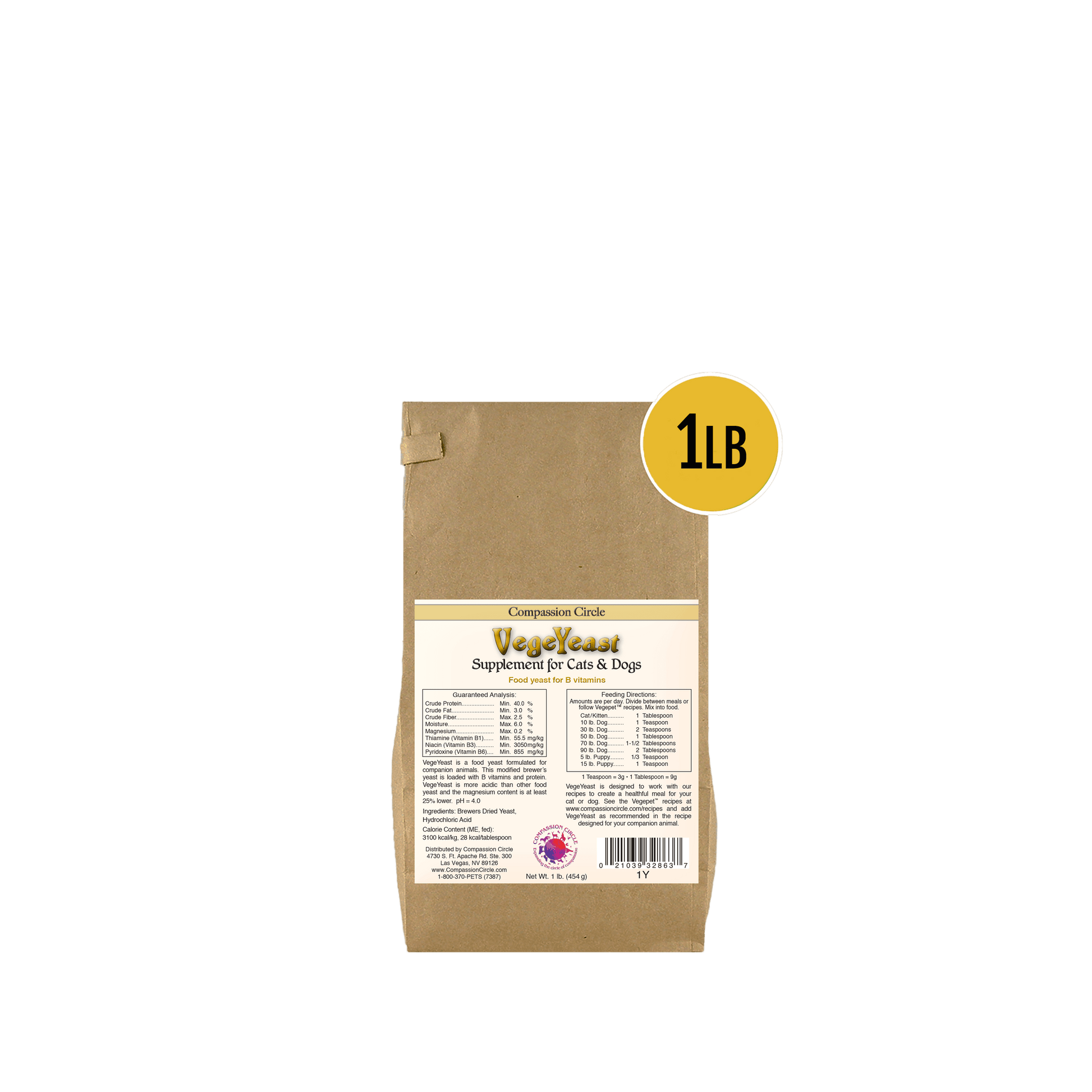
Credit: vecado.com
Alternatives To Nutritional Yeast
If you’re considering alternatives to nutritional yeast for your dog or cat, there are several options that can provide similar nutritional benefits. These alternatives can support your pet’s health without relying solely on nutritional yeast. Let’s look at some supplements and natural food sources that might work well for your furry friend.
Other Supplements For Nutritional Support
Many pet owners look for supplements that offer B vitamins, protein, and immune support like nutritional yeast does. Some popular choices include:
- Brewer’s yeast:Similar to nutritional yeast but with a slightly different nutrient profile. It’s rich in B vitamins and can improve coat health.
- Fish oil:Provides omega-3 fatty acids that support skin, coat, and joint health. It’s especially good for pets with inflammation issues.
- Probiotics:Help maintain a healthy gut flora, which can boost overall immunity and digestion.
- Multivitamin supplements:Designed specifically for pets, these can cover a range of nutritional bases, including vitamins, minerals, and antioxidants.
Before adding any supplement, ask yourself: Does this fit my pet’s specific health needs? Always check with your vet to ensure safety and proper dosage.
Natural Food Sources
You don’t always need to rely on supplements to boost your pet’s nutrition. Whole foods can provide many essential nutrients naturally.
- Lean meats:Chicken, turkey, and beef are excellent protein sources that support muscle maintenance.
- Eggs:Packed with protein and essential amino acids, eggs can be a great occasional treat.
- Vegetables:Carrots, green beans, and pumpkin offer fiber and vitamins. Many pets enjoy them cooked or pureed.
- Fish:Salmon and sardines provide omega-3 fatty acids, which help with inflammation and skin health.
Have you noticed your pet’s coat looking dull or their energy dropping? Sometimes, small changes in their diet with natural foods can make a big difference. Trying out a few of these options might reveal what your pet enjoys and benefits from the most.
Frequently Asked Questions
Can Dogs Safely Eat Nutritional Yeast?
Yes, dogs can eat nutritional yeast in small amounts. It provides B vitamins and supports their immune system. Always consult your vet before adding new supplements to your dog’s diet.
Is Nutritional Yeast Good For Cats?
Nutritional yeast can benefit cats by offering vitamins and antioxidants. However, it should be given sparingly and only after vet approval to avoid digestive issues.
How Much Nutritional Yeast Can Pets Consume?
Pets should consume nutritional yeast in moderation, usually a pinch or sprinkle. Overfeeding can cause upset stomach or allergies. Always start with small doses and monitor your pet’s reaction.
Are There Risks Giving Nutritional Yeast To Pets?
Some pets may experience allergies or digestive upset from nutritional yeast. Avoid it if your pet has yeast sensitivities or fungal infections. Always check with a vet before use.
Conclusion
Nutritional yeast can be safe for dogs and cats in small amounts. It offers vitamins and may support their health. Always check for allergies or reactions first. Avoid giving too much to prevent stomach problems. Speak with your vet before adding it to meals.
Careful use helps pets enjoy benefits without risks. Keep your pets happy and healthy with smart choices.

